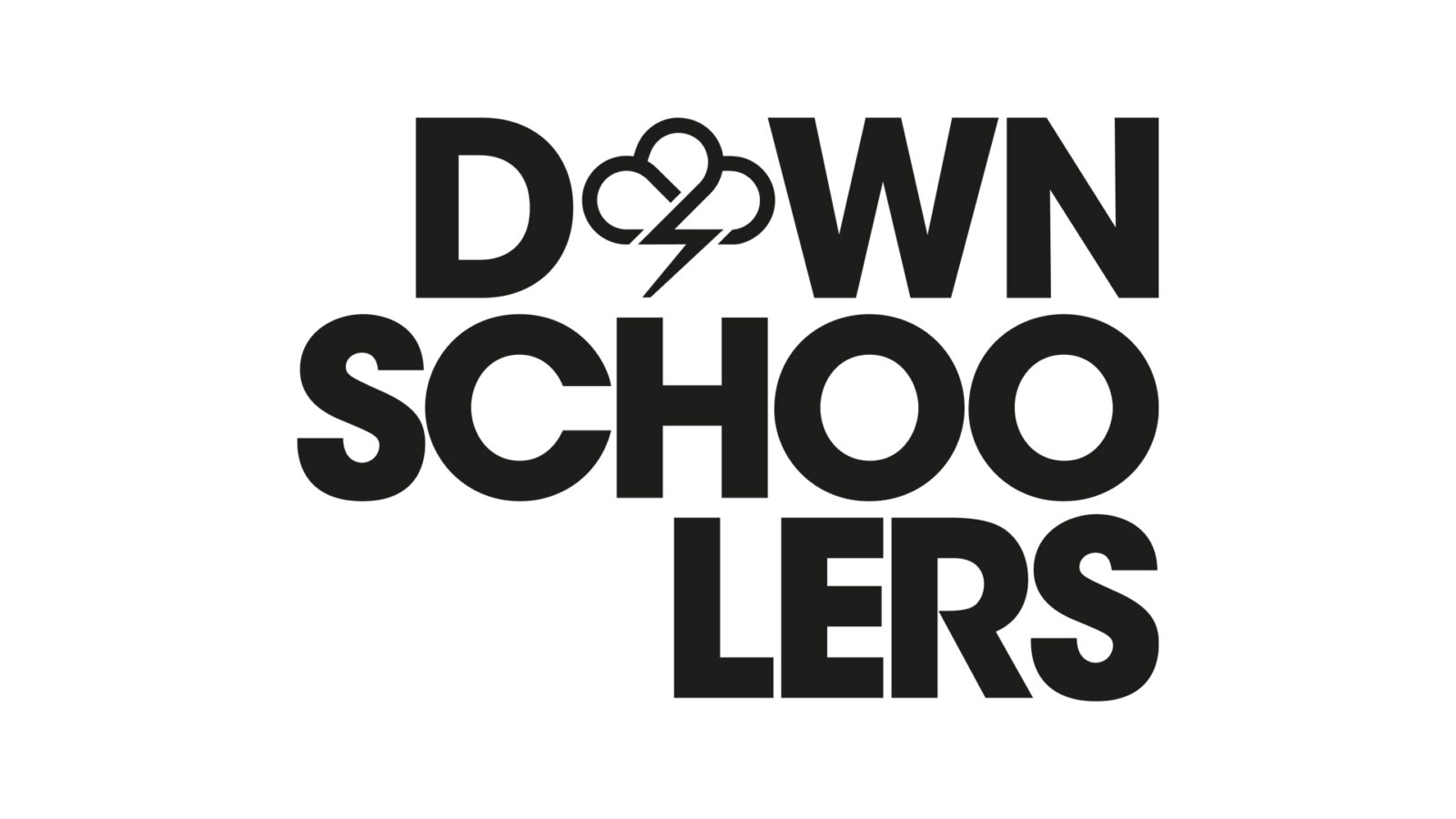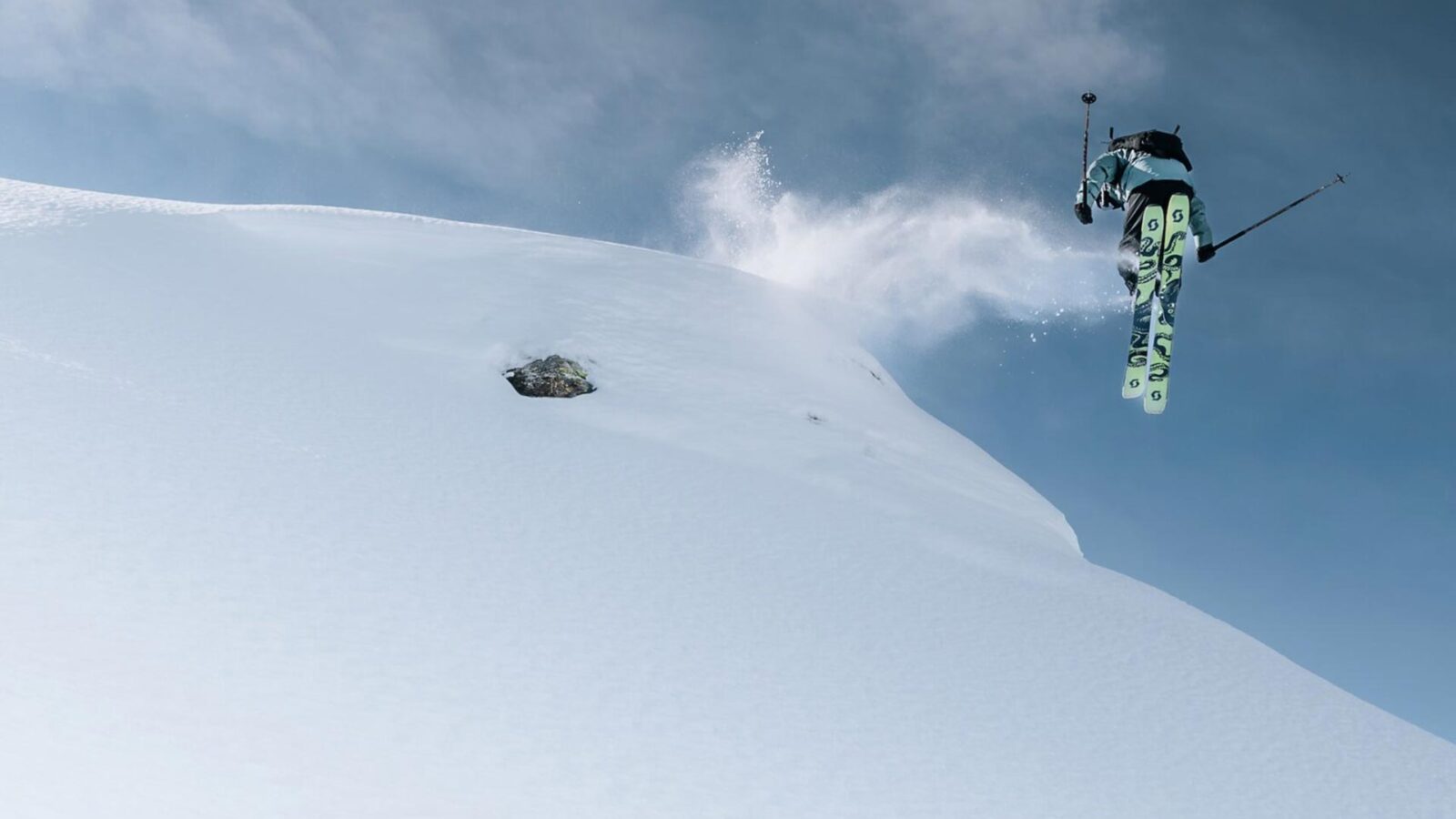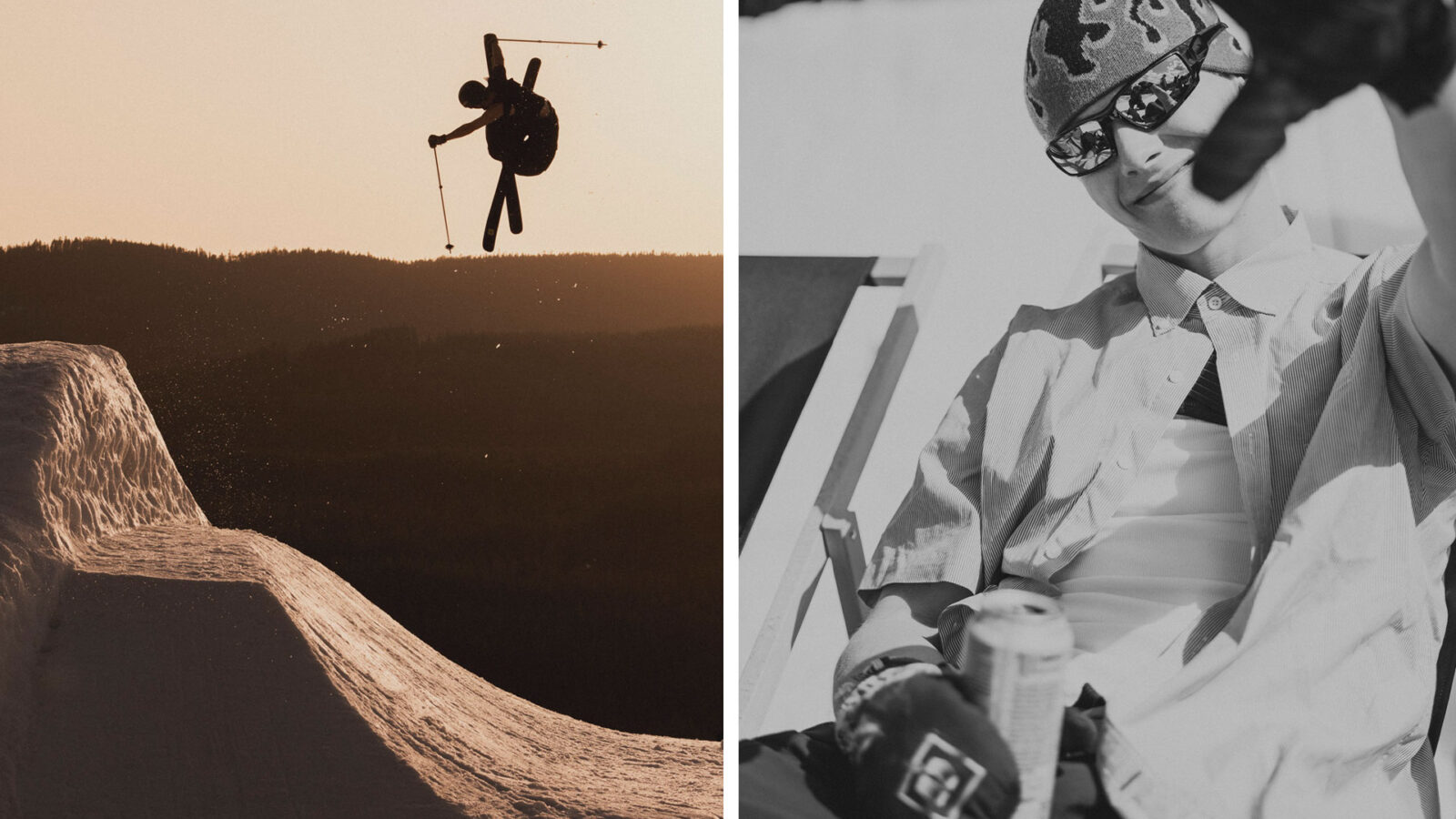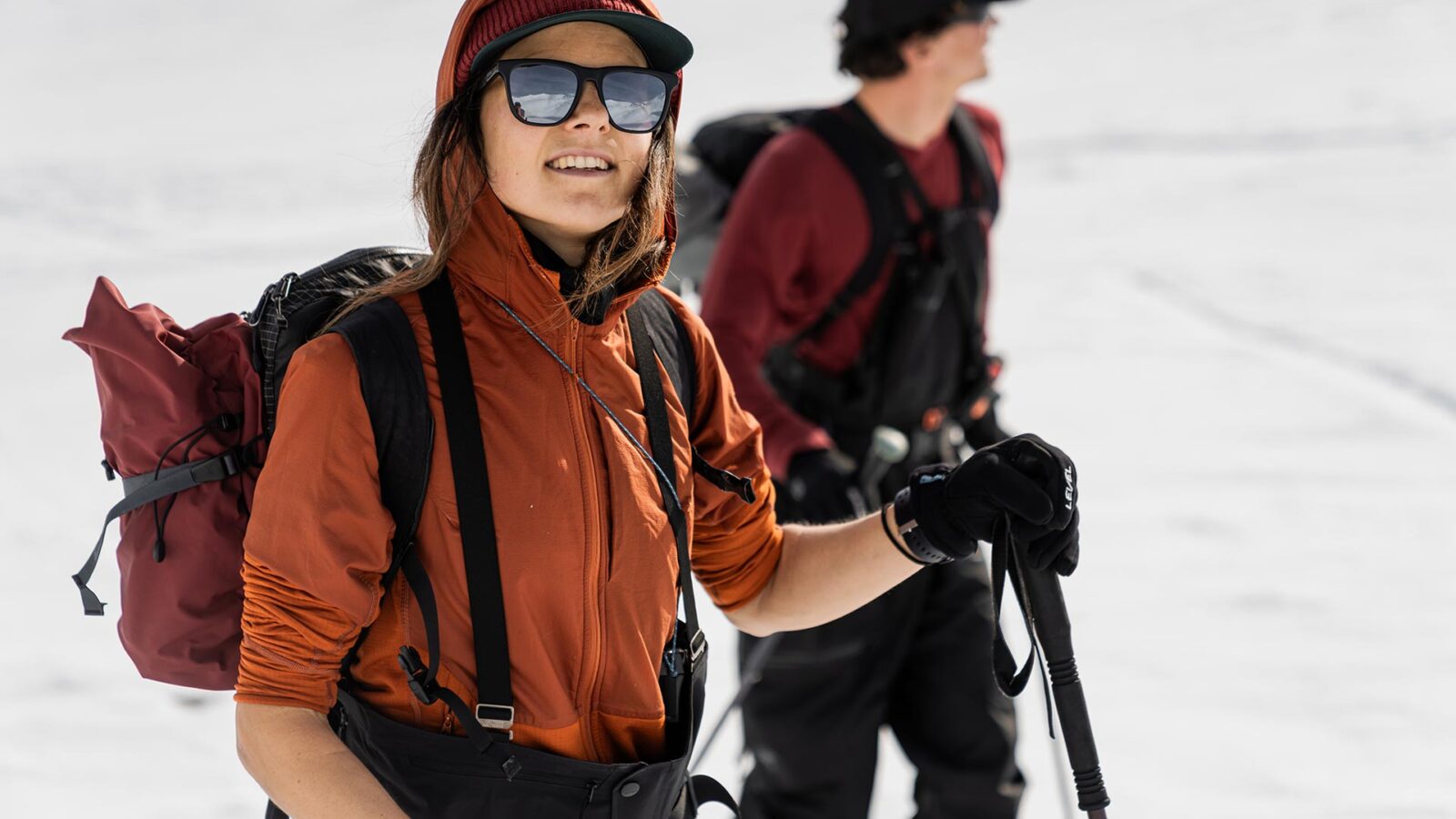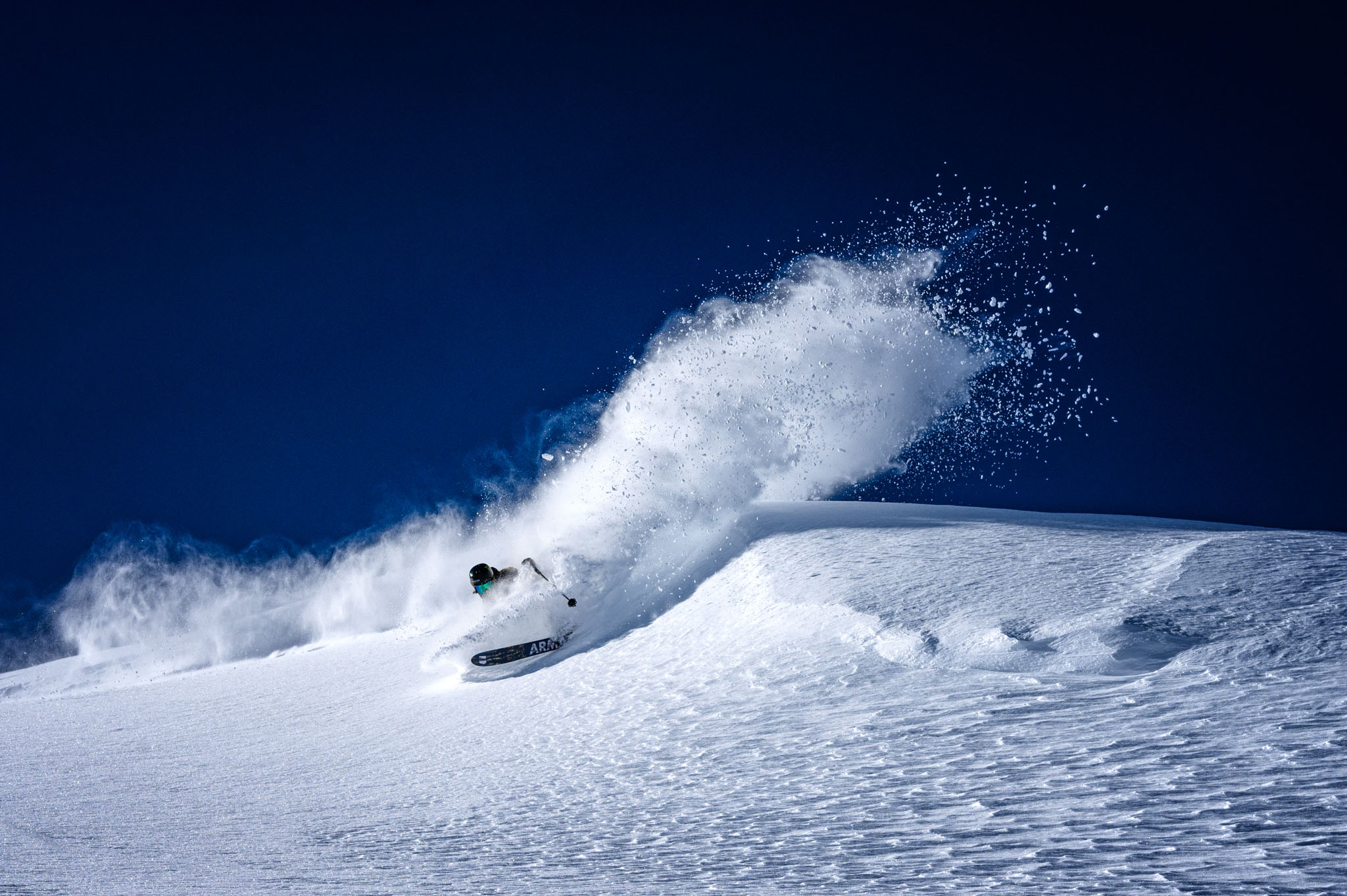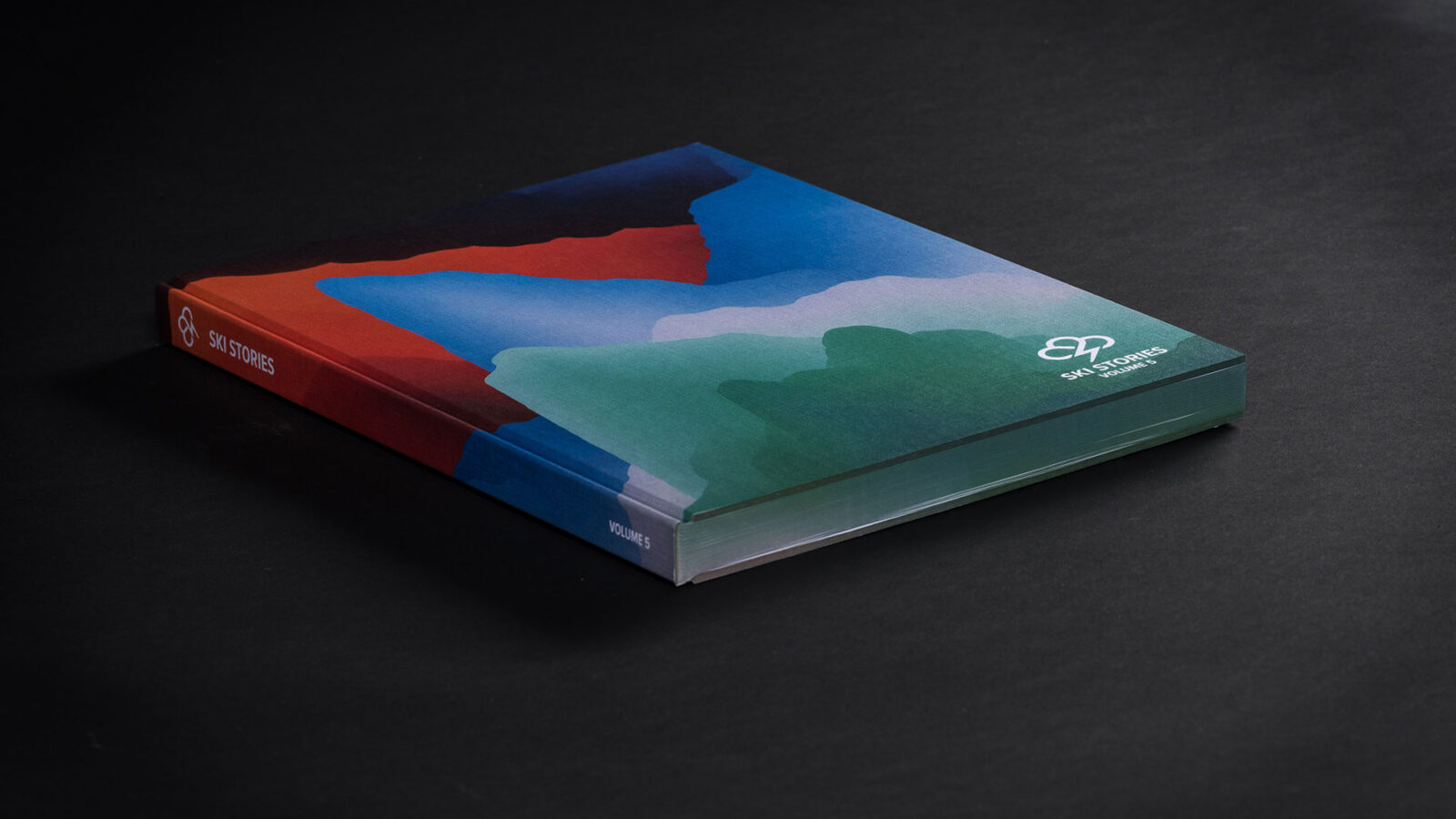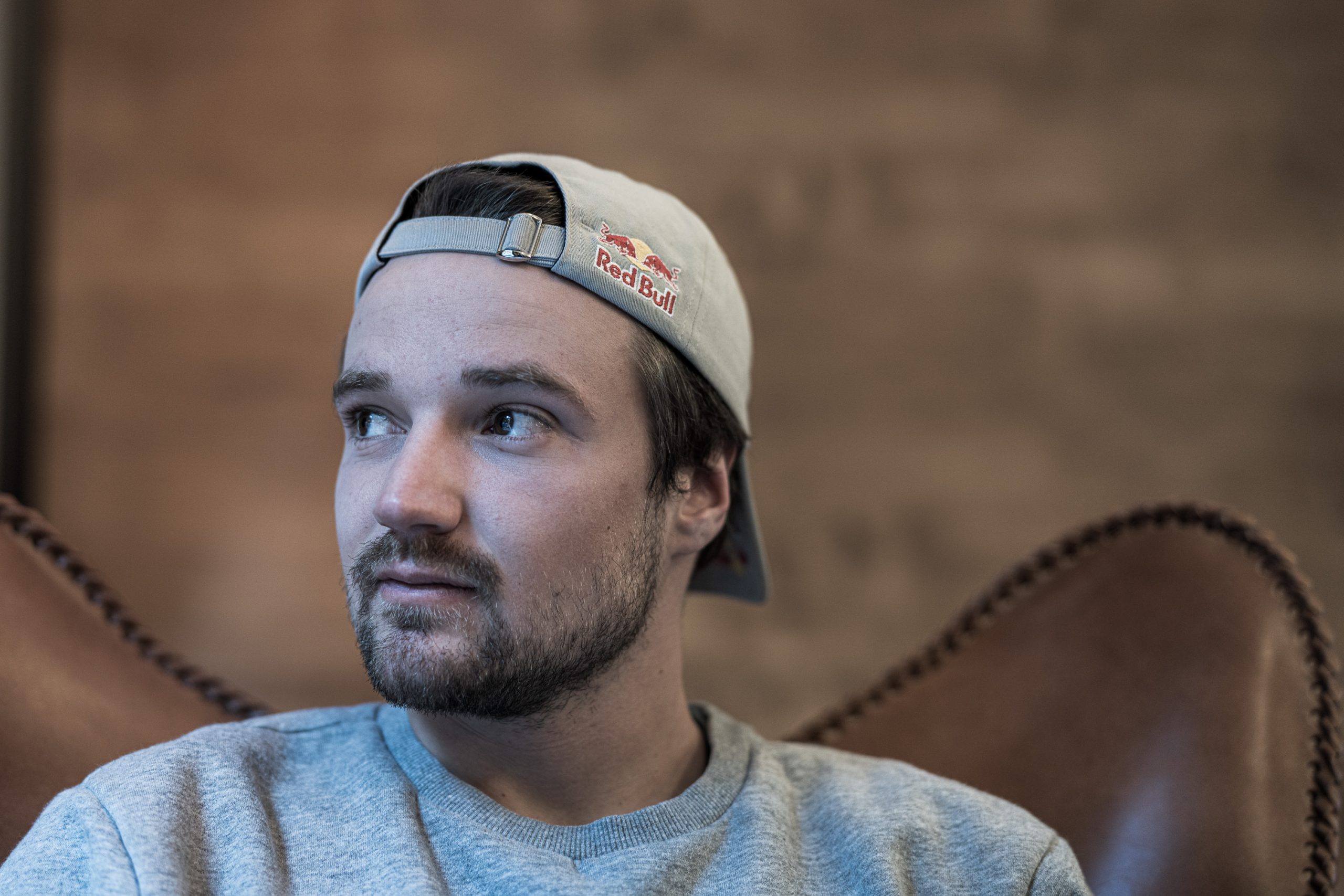
Stories
HighlightFabi in Focus
On The Record: Fabian Bösch
Following the trail blazed by Kai Mahler and Elias Ambühl before him, Fabian Bösch’s rise to stardom helped mark the ascendance of the Swiss Freeski Team on the international stage. Alongside teammates like Andri Ragettli, Mathilde Gemaud and Sarah Hoefflin, Fabi’s early success as a breakout young talent let the world know that the Swiss weren’t to be messed with in big air and slopestyle.
Now a seasoned veteran on the cusp of 25 years old, Fabi has three Olympics and a decade of contest experience under his belt. At the end of yet another grueling contest season, I caught up with Fabi at The Nines in Crans-Montana to find out what it takes to operate at his level.
Fabian Bösch
Born: 6 July 1997 (24 years old)
Hometown: Engelberg, Switzerland
Home mountain: Engelberg-Titlis
Sponsors: Red Bull, Buff, Out Of, O’Neill, Atomic, Level, BKW Energie
Results:
3rd, World Cup Slopestyle, Silvaplana, 2013
3rd, WC Slopestyle, Gstaad, 2014
1st, World Championships Slopestyle, Kreischberg, 2015
1st, Jon Olsson Invitational Big Air, Åre, 2015
3rd, Dew Tour Slopestyle, Breckenridge, 2015
3rd, Nine Knights Big Air, Livigno, 2015
2nd, SFR Tour Slopestyle, Val Thorens, 2016
1st, X Games Big Air, Aspen, 2016
3rd, Total Fight Slopestyle, Grandvalira, 2016
2nd, X Games Big Air, Oslo, 2016
2nd, Fridge Festival Big Air, Obertauern, 2016
2nd, WC Slopestyle, Silvaplana, 2016
2nd, WC Big Air, El Colorado, 2016
3rd, WC Slopestyle, Cardrona, 2017
Best Trick, Spring Battle, Absolut Park, 2018
1st, World Championships Big Air, The Canyons, 2019
2nd, WC Big Air, Quebec, 2019
3rd, WC Slopestyle, Silvaplana, 2019
1st, Total Fight Slopestyle, Grandvalira, 2019
3rd, Audi Nines Big Air, 2019
3rd, X Games Slopestyle, Aspen 2020
3rd, X Games Slopestyle, Norway, 2020
2nd, WC Slopestyle, Seiser Alm, 2020
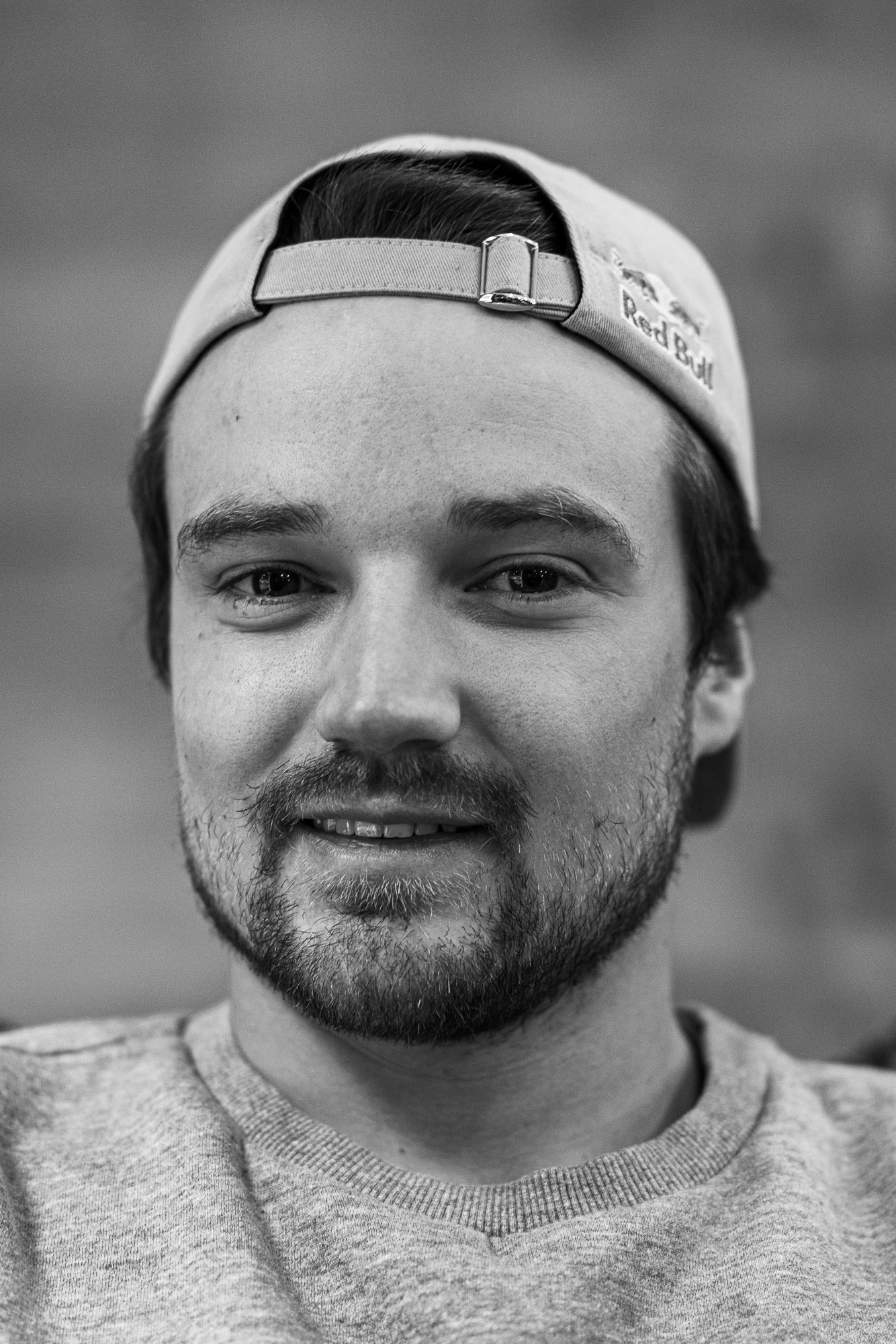
Portrait: Polzer
I’m someone who’s really objective. I don’t look at stuff in a good or in a bad way.
Ethan: Your home mountain, Engelberg, doesn’t have a park.
Fabian: No park, nothing. They used to have a big park back in the day, but at some point they stopped and never got back to it.
Still, a few years ago you did the Fabian Bösch Invitational there with a big jump.
Yeah, that was really fun. it was on top of Mount Titlis on the glacier, super late in the season. I worked together with Kobi Würsch, the shaper who does Corvatsch Park. I know him really well and I love his jumps. I hit him up because in Engelberg nobody can build jumps. It was an amazing jump, amazing week, perfect weather.
There aren’t a lot of skiers on the Buff team. How did you get hooked up with them?
Back in the day they sent some care packages for the whole Swiss team, but nobody really asked for a sponsorship. My manager asked if we could make something happen, and it worked out. At first they didn’t really have what I was looking for, so I showed them—something thin, because I wanted to have my helmet tight. With a thicker beanie or balaclava, the function of the helmet doesn’t work that well anymore. That's also why I wear my goggles over the helmet. Over the years I’ve started to look for what’s the safest for me as a person. Getting injured just because I wear my goggles under the helmet would be unnecessary.
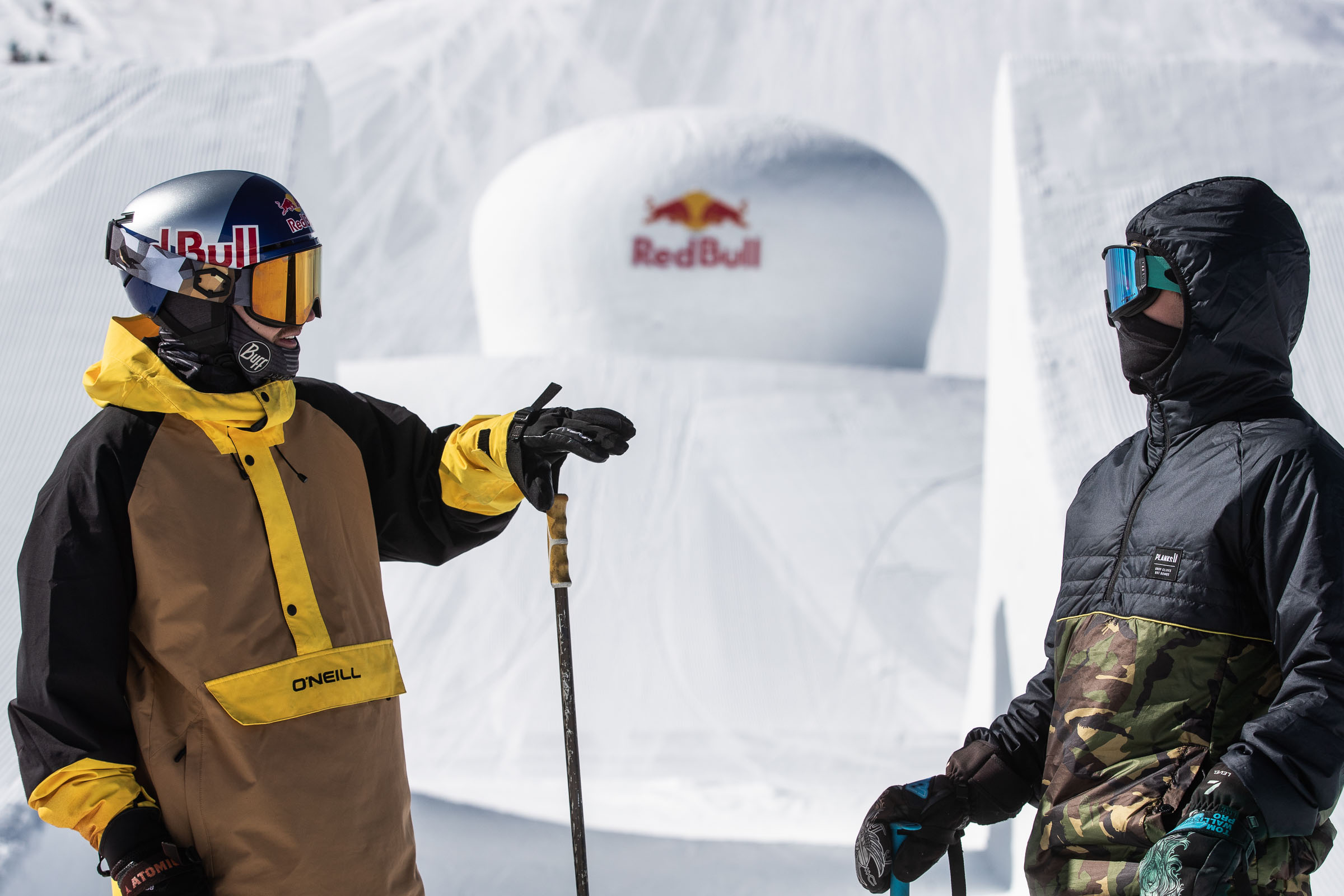
Function over fashion: Fabi prefers goggles over the helmet. Photo: Florian Breitenberger
it’s not worth it to fit in to the style.
It seems like goggles over the helmet has come back recently, hasn’t it? it used to be like, Oh, “That’s not cool.” But now a lot of people do it.
No, in slope, not a lot. I’m still one of the only ones. In pipe a lot of guys do it. In snowboard a lot of guys, slope and pipe, do it. But in ski slope I’m still one of the only ones.
It’s kind of crazy to do something that is objectively not functional, just for the sake of style.
That’s what I thought too. At some point I was like, it’s not worth it to fit in to the style. It’s uncomfortable and the helmet doesn’t really work anymore. I mean, nobody has done a study on how bad it is, but the helmet for sure isn’t designed for that.
Do you have custom stuff that you made with Buff?
I gave them what I had before, a non-brand thing that I bought on the Internet, just looking for something that fits. I gave that to them, they looked at it and made something similar and gave it to us for for testing. Now it’s in the line that you can buy.
Like a balaclava?
Yeah, but it’s not just a round cutout for the face. I like the one with a kind of hinge on the side. Then you can have it down low or up high, and it doesn’t really mess up the form of it. Thibault [Magnin] was involved too, he also said he would prefer something like this. It’s really cool when the company you work with asks what you would prefer, and they actually listen and try to make it happen.

Birds-eye view of Fabian at The Nines. Photo: Theo Acworth
There must have been a lot of build-up and pressure for you going into this Olympic year. When does that all start? What’s the process like?
It’s probably different for individual athletes, but for me it started last summer. I can’t really go farther back, because I broke my collarbone last winter [February 2021] and pretty much missed out on half the season. I came back at the end of the season and skied till June, had a month off, and started again in July. So there wasn’t really a break in between [seasons]. We went really early on the airbags, had a lot of training there, started early on snow and just kept going. So, like, a huge preparation phase.
It’s always in the back of your mind that it’s the Olympic season, and you try to go for even more training days, more repetitions. It was for sure one of the more intense summer and fall seasons, to prepare and be ready for the Olympics. Once the competitions start, the qualification is still on your mind—you still have to get good results to actually be on the team and be able to go. It’s a lot of pressure, a lot of thoughts, a lot of skiing. Then you go, you try everything, you try your best. What I really felt was afterwards—you’re just done. You’re so tired. And then [the season] kind of kept going! The Olympics wasn’t perfect for me, but I still had the overall globe [the overall World Cup slopestyle title] that I could fight for. Then I got Covid and missed the Georgia World Cup. It wasn’t over yet, but it was really tough to get back to the top spot. Then I had a mistake in France and didn’t make finals, and then it was done. Already in France it was so hard to get that focus, that energy that I wanted because I was already on the back foot, and it was late after a super exhausting season.
It was a bit strange that there were still three World Cup slopestyles after the Olympics this year. The pipe guys were done, Big Air was done…
I mean, I’m glad for the competitions that we have—that we have a full season with a lot of events, not just three or four. But for sure, it was a lot. You do the Olympics and your energy level goes down, and then you still have to push through and get back into it, full send. For sure, it wasn’t easy. I think I did a good job at Corvatsch with a top-ten result in the end. But for the last couple of events it was tough to get the energy level high.
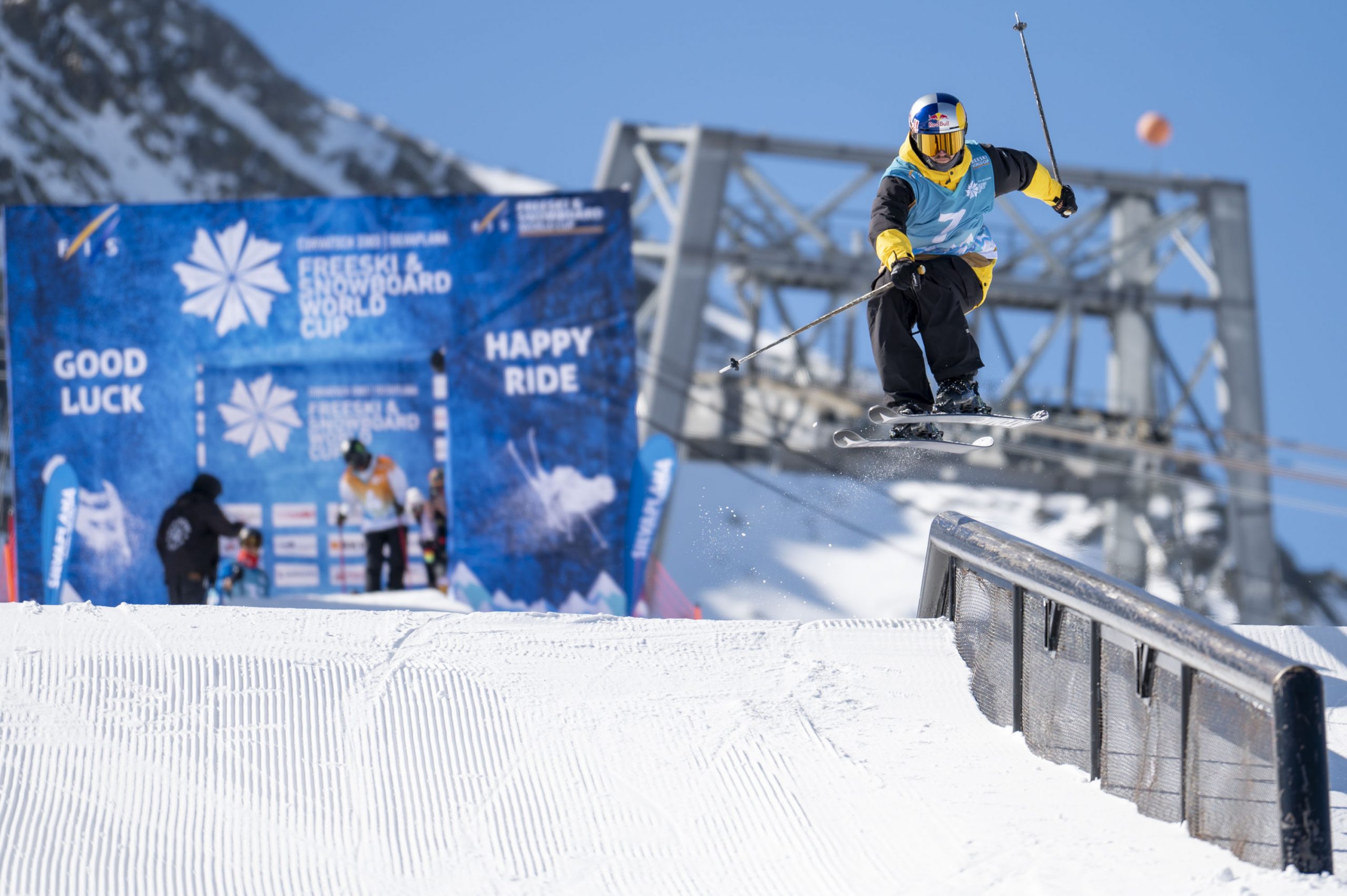
Fabi has posted some of his best results at the World Cup Slopestyle in Silvaplana. Photo: Christian Stadler
Next year is my tenth World Cup season. I’ve seen a lot.
Now that this tough season is over, what are your plans? Are you going to go lay on a beach for a while?
The thing is, I’m in school so I can’t really do anything until the end of June. There’s this [The Nines] and an Atomic team shoot next week, but then I probably won’t ski much afterwards. Maybe I’ll cruise around with friends at home, but no park skiing for a while. There are final exams in June and I need to study.
Are you in university?
No, I’m doing a “Kaufmännische Grundausbildung” (commercial basic training). It’s like an apprenticeship—you learn the profession pretty much. I’m doing it specifically for business. It’s a general business education, so you go into finance, marketing, IT, different subjects. After that, you can choose which direction you want to go. But it’s a perfect base to have for after skiing life. When I’m done with the school part, I still have to do an apprenticeship that I’ll do in August.
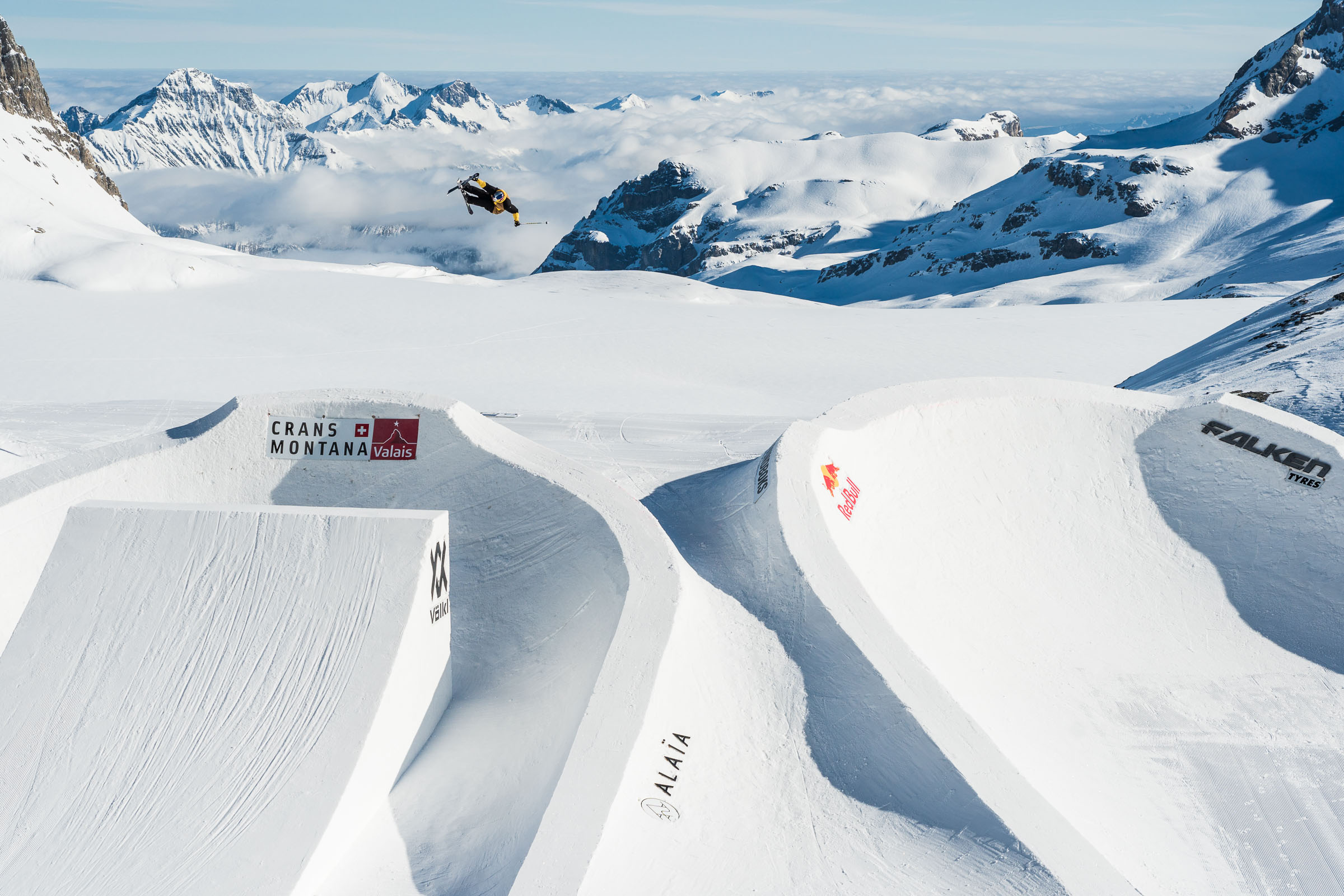
In action at The Nines. Photo: Polzer
Any other plans for the summer?
I’ll go to Whistler in July, then down to Park City with A-Hall [Alex Hall], Colby [Stevenson], Mac [Forehand] and the guys and stay there for another few weeks. In Whistler I’ll coach at Momentum Camps. I’ve already been there twice—not for the past two years due to Covid, so I’m really looking forward to going back. I can ski until 2pm, go down and hop on a mountain bike. Whistler is crazy for biking. The cool thing is, you get a little bit of money [for coaching], so I can pretty much pay off the flight. So it’s kind of like a free holiday—that’s kind of why I do it. You can also do half a week of coaching and half a week skiing. But like I said before with the energy, it’s the middle of summer and I’m not going to go on a big jump and huck myself anyway. I’m there to give something back and ski with the kids. But I’m also there for biking and to have a holiday.
And then you go to Utah and visit the boys?
Yeah. I did that in December last year and it was sick. That’s the cool thing about our sport. You pretty much know everyone, and everyone gets along really well in the competition scene. You spend so much time on the mountain with each other. In other sports you train separately, but for us, even at World Cups we ski together for two hours a day. Training, competition, we’re on the same course, in the same lift line. You get to know other people. It’s something I really appreciate because I have friends all over the world now, and that’s not something everyone can say.
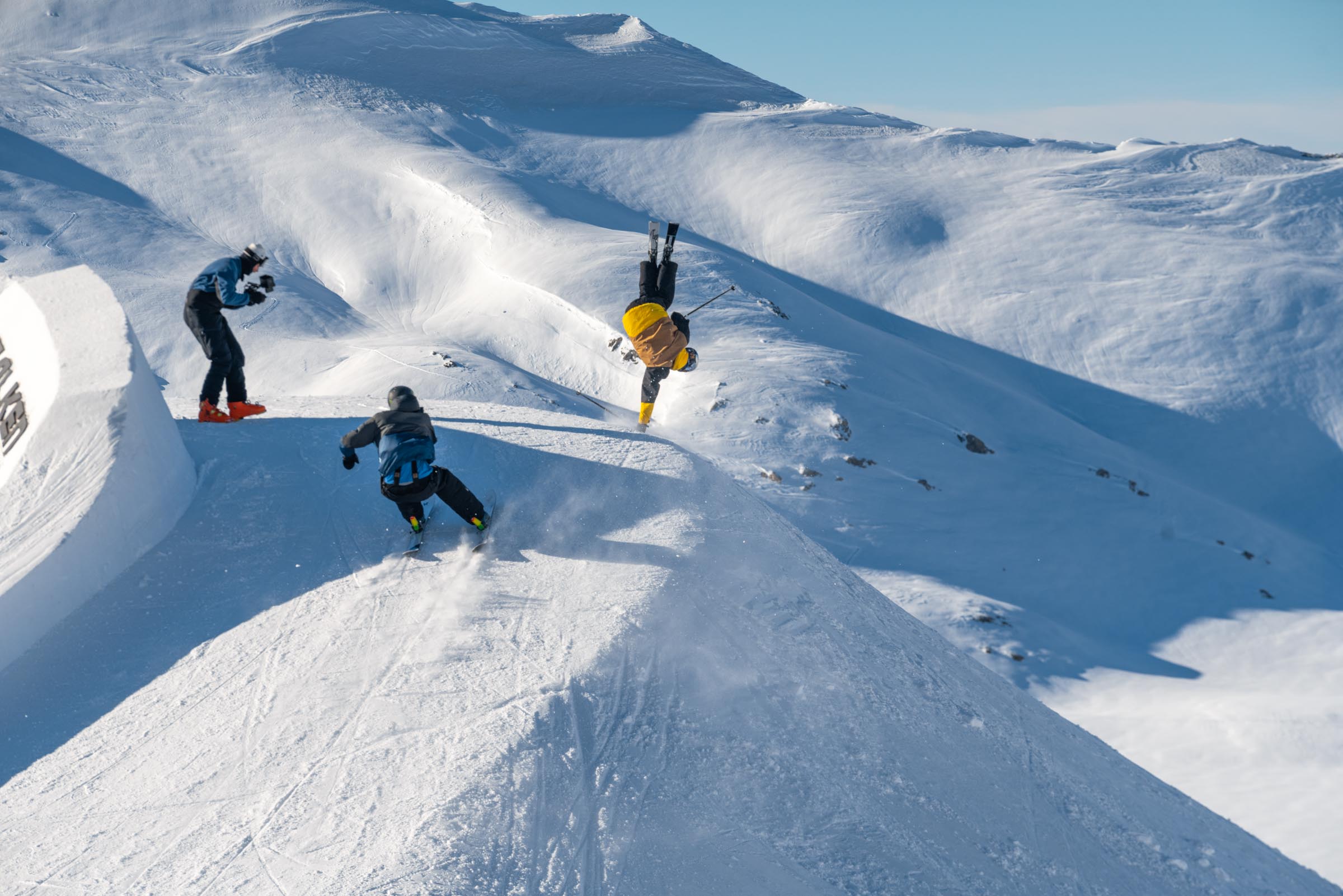
High-speed hand drag with Alex Hall on the followcam. Photo: Markus Fischer
You can say that the cleaner run beats the run with a mistake every time, because there was a mistake, even it was a little mistake. Or you can say that because it was a harder run, you can have a little mistake and it’s still fine.
Going back to the Olympics for a minute… I remember that you landed your first slope run in finals about as clean and as perfect as anyone could ever do, and you ended up in sixth place. What did you think about that result?
It wasn’t just the Olympics, it was kind of a similar feeling for me at each competition throughout the whole season, pretty much. I chose runs that I could do clean with no mistakes, and on purpose I took out some difficulty at some spots to guarantee that I’d have the cleanest run possible. I did a lot of good runs with no mistakes in them, but always got stuck from fifth to tenth place, somewhere in there. I didn’t know exactly why and I started thinking, talking with my coach. There were points for sure—difficulty on rails where I could improve—that was all clear to me, that some stuff was easier than others. But then there was also questionable stuff, like people making mistakes in harder runs, but they’re still in front.
You can look at it from every direction, and everything’s fine because there’s no rule. You can say that the cleaner run beats the run with a mistake every time, because there was a mistake, even it was a little mistake. Or you can say that because it was a harder run, you can have a little mistake and it’s still fine. There’s always a lot of questioning: what’s going on, how will they judge. I just always hoped and believed that if I had a clean, clean run with no mistakes, that I could make the podium or close to the podium. I was always hoping for that, in the finish area I was always like, “Please, please, please,” and then the score shows up and you know it’s not going to be a podium score.
For sure there was some disappointment, but on the other side, I was proud of how consistently I put runs down throughout the season. In the end you can’t do much more than pick a run and do it without a mistake, and if you do that, then you did your job. You can start telling yourself that you’ll risk more next competition, but then maybe you crash and don’t have a result at all. All in all it was a really good season for me. I’ll just keep going, and there will be other competitions. I’m really really close to podiums, and I will come back.
It has to be hard as a competitor to make those decisions, beforehand and in the moment, choosing to take more or less risk—and with the judging changing from year to year and from contest to contest. It sounds like you opted for consistency and perfection, but it didn’t get rewarded like you hoped.
What’s a little bit sad is that you don’t really know. You get confused because it’s always different. I just felt like I was stuck there, and in front there was different stuff happening. Like, a creative run from A-Hall can clearly be the winner [at the Olympics], but then also in Corvatsch at the end of the season, we had runs with less variety be super far in front. Usually it would happen that if you only spin in three directions where you could do four, that you would be way in the back. But this time it seemed like they didn’t really care. It’s just a little bit confusing. But yeah, in the end, there’s no rules.
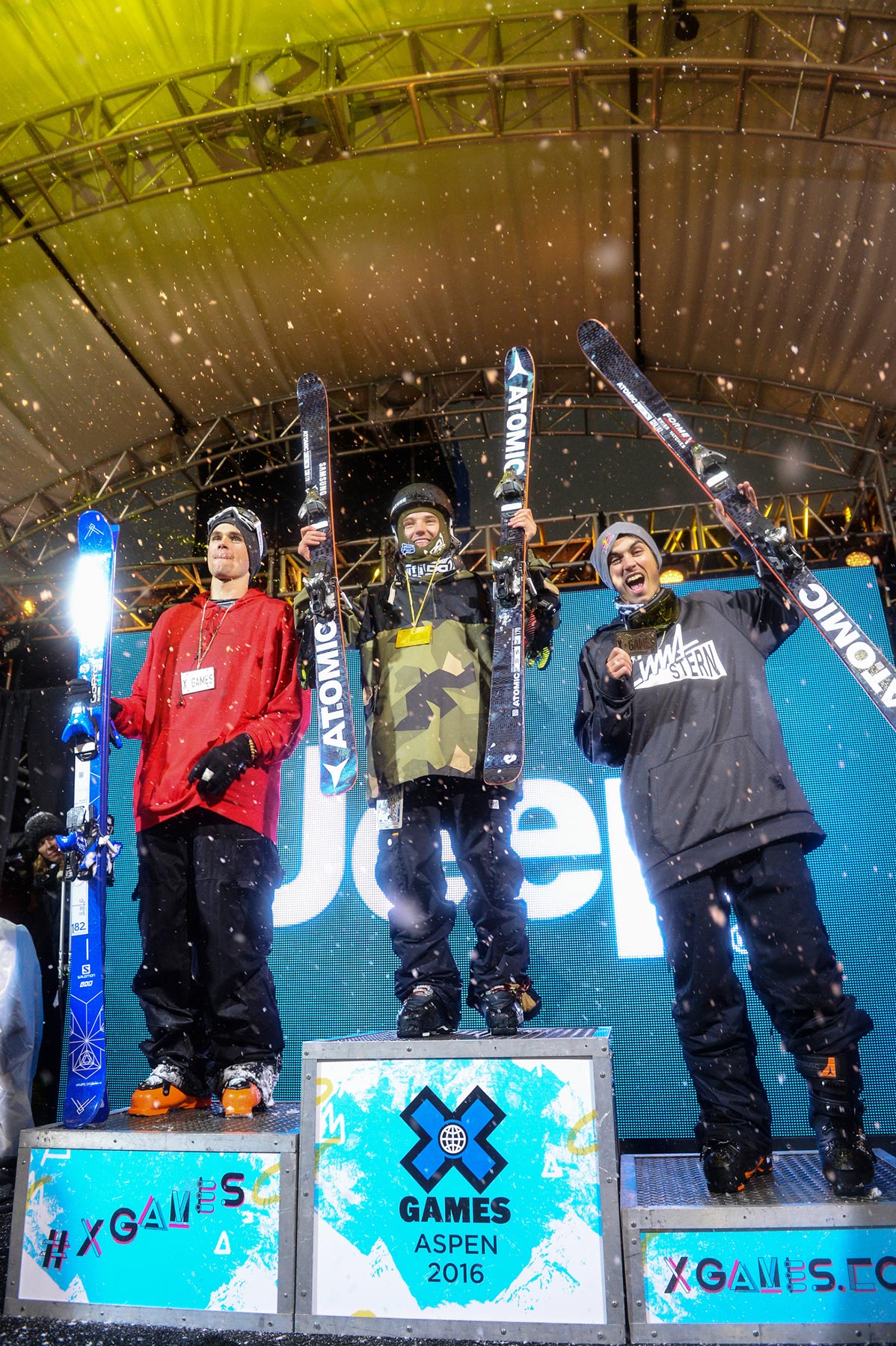
Fabi´s first big win came at the 2016 X Games, where he prevailed in a snowy Big Air final ahead of Bobby Brown and Elias Ambühl. Photo: Flip McCririck/ESPN Images
the big air format doesn’t work anymore. There’s so many different crazy tricks getting done perfectly.
I mean, there are definitely people out there saying, “Fabi Bösch got robbed.” But you seem pretty chill about it.
Next year is my tenth World Cup season. I’ve seen a lot. I feel like there are some kind of trends. You get some good results in a row, and then you’re the guy on the hot streak who’s doing really well. You keep getting results, maybe a little because of that—because in the back of the judges’ minds, at that moment, you’re really good. And then you don’t really have those consistent podiums anymore and it’s already like, “Ah, at the moment he’s not that good,” and you get a bit more passive judging. I think this something that happens all the time through the years. Somebody new shows up, and the first season it’s like, “Boom, boom, boom,” because it’s the new kid, he’s really good and gets all the results. And the next season, you drop back to between fifth and tenth.
You’ve gone through that cycle yourself.
I had exactly this. Good results, podium results, then two seasons without any podiums, and then back to getting podiums. It’s always little ups and downs. I just keep going, and it will come back. I know I have the tricks, I’m still putting the time in, and it will come back.
You were more of a big air skier when you were first coming up, but now it seems like slopestyle is more your thing.
It doesn’t really matter to me. But what I saw this season is that the big air format doesn’t work anymore. There’s so many different crazy tricks getting done perfectly. You can be in a really good spot, or you can drop back ten places in a heartbeat, and you didn’t even make a mistake. Maybe there are really good tricks in front of you, or maybe it’s your second trick, your less good trick—it can make a huge difference when the format is best two out of three and pretty much everyone stomps. The Olympic qualis, that was insanity. I was in 17th with two perfect jumps—not even a chance to get into finals, not even close. And there were so many more than me that had two perfect jumps.
What were your tricks?
Switch triple 18 safety and double 16 tail to tail. Then last run, because I’d dropped out, I went for forward triple cork 18. It was flat light and I was actually so scared, but I was like, “Fuck it, I’m gonna do it.” I couldn’t see anything. I knew it was going to work out pretty much to my feet but I couldn’t really spot the landing, so I landed and washed out to the side, and I kind of let go of the grab, so I wouldn’t have made it even if I’d landed it. It’s crazy because a couple of years ago, you could have your own trick; pretty much everyone had his trick and it was not ten of the same. It just makes it so hard to judge.
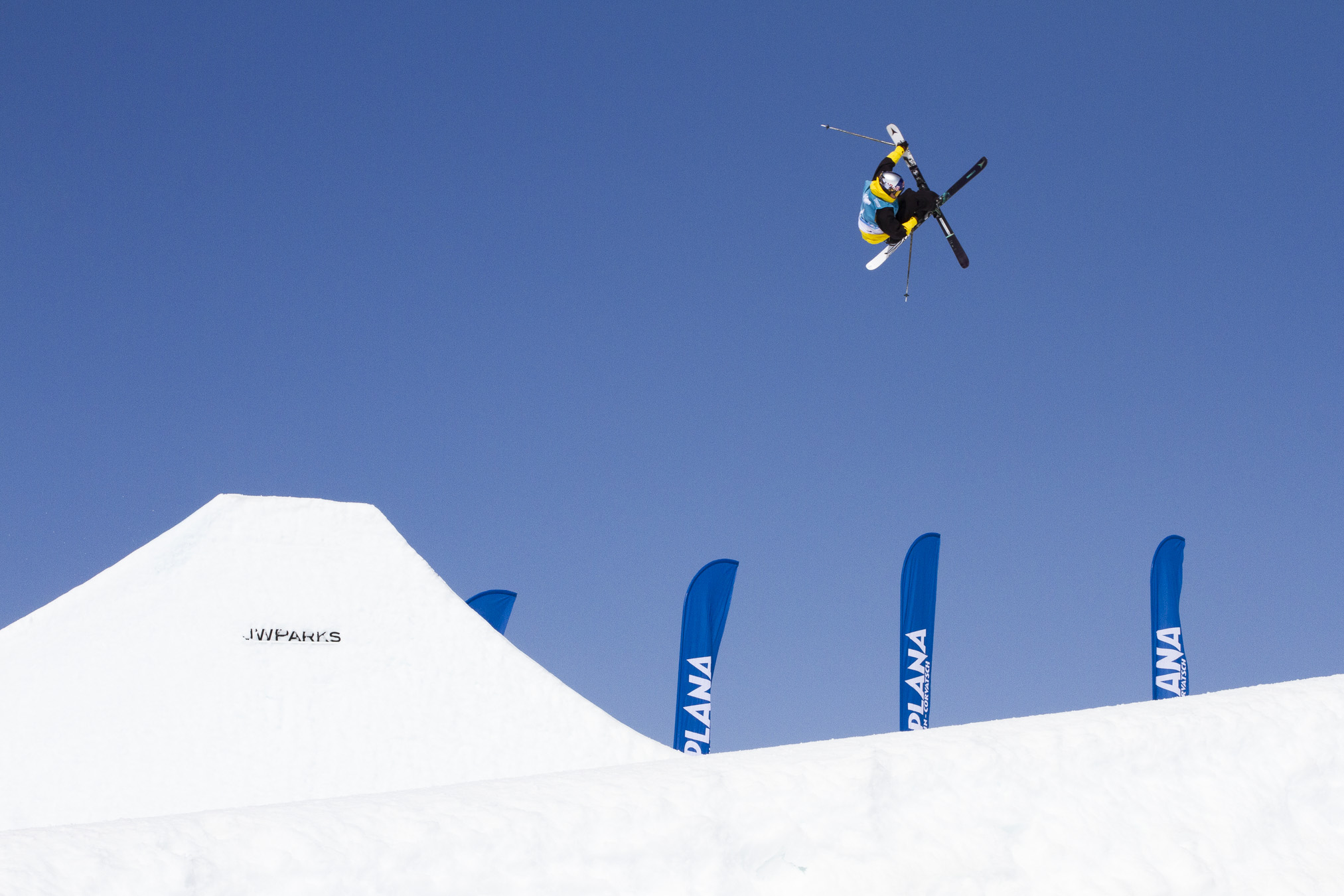
No stranger to the competition circuit: Fabi in action at Silvaplana. Photo: Ethan Stone
we can for sure get inspiration from gymnastics, from figure skating, from aerials, because they are all judged sports. They’ve been doing it for way longer, they had the same problems, and we can see how they evolved.
It’s crazy to see it going that way, and not know what the solution is. My solution would be to have a mandatory style trick.
It would be an option. We were talking about it, and I really like how they do it in the aerials format. You take the whole field and you cut it in half until there’s only four left. It’s like four or five rounds, and you have to do different tricks every round. There’s no margin for error—you have to land every run, otherwise you’re not going to make the grand final. And you have to pick when to do which trick. Maybe I need my best trick to get into the super final, but then I don’t have it anymore. I kind of like it because with the safety run that we have [in Big Air]—two jumps, count one—the level is too high, too many people make it. If you have a zero-percent tolerance for failure, there’s more of a natural selection. More people are making mistakes, and they’re already out of the question.
So you just get one trick per round to advance?
I think they start with 32 and then cut it in half. Sixteen, eight, four, and then it’s done. You could take the whole field in the quali, and half goes out. The next day you could do the final. I think it would for sure be a good thing to try. If we don’t try, we don’t know how it works or if it works. But it would be an option for sure. It doesn’t have to be the exactly the same [as aerials], we can still switch it up.
It’s funny to think that we can learn something from aerials.
But we should. Their sport is way older, and they ran into the same problems that we have now: the level goes up, people have better training facilities, a water ramp, whatever. It got too close, and they had to start making rules and different formats. it doesn’t have to go this way, but we can for sure get inspiration from gymnastics, from figure skating, from aerials, because they are all judged sports. They’ve been doing it for way longer, they had the same problems, and we can see how they evolved.
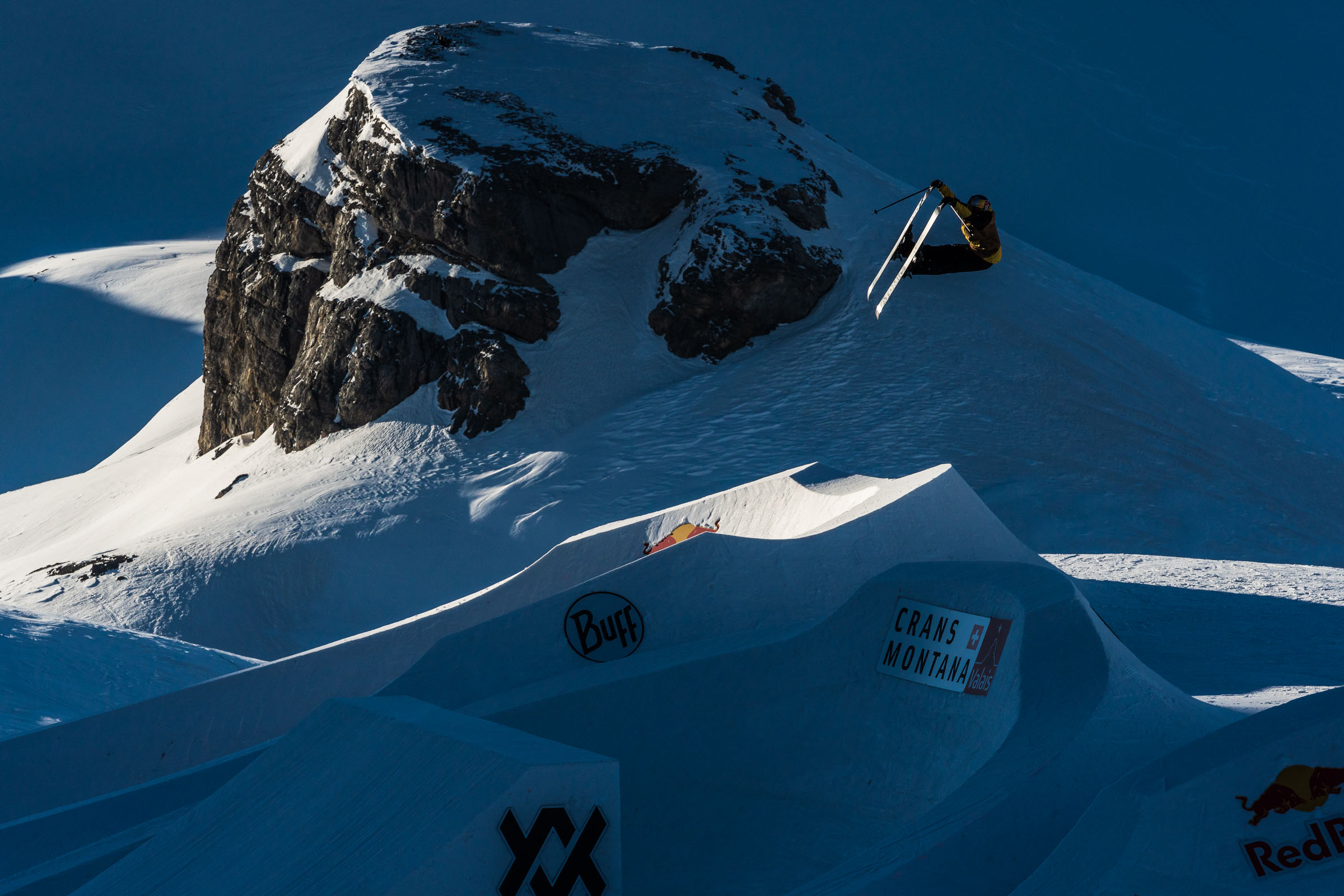
Can freeskiing learn from aerials? Fabi thinks so. Photo: Polzer
China was your third Olympics. It is new each time for you, or is it like, yawn, another Olympics?
It’s always a different vibe. In Russia [Sochi 2014] the course was super nice, the weather was good, but the village was just a construction site—they weren’t even close to being finished. That was for sure something that made it kind of weird. If I think back to Sochi, it’s construction sites and super slushy spring skiing in a crazy park. Korea [Pyeongchang 2018] was shitty for me because I got sick. There was a norovirus going around, and I got that and was in quarantine. Already back then—I did it before it was cool! I missed two out of three training days, and there was no chance of getting something on that difficult course with just one training day. On the morning of the competition, I didn’t even have a run yet. So I figured out a run during the five-run warm-up, tried it and failed miserably. So going into China I was like, “This is the time.” Also with everything I learned over the years, I was kind of looking forward to getting revenge with the Olympics. All in all it was super well organized, everything worked smoothly. The big air is insane—the whole location, how it’s built. The park up in the resort was also really good. And I skied well—I got sixth place! It’s not like I’m super disappointed. Obviously I hoped for more, but in the end, I did what I could and got sixth place. I’ll take it.
Already thinking about Torino 2026?
I actually just talked with my coach. I’m turning 25 this summer, and at 25 you’re not one of the young guys anymore. I’ll take it season by season. I’m not planning towards the next Olympics already. For sure it’s a goal, I’m not against it. There’s also the World Championships in Corvatsch the year before, and I definitely want to do that. I’ll see where I am and how my body is feeling. If there’s still a chance to get a good result at the Olympics the next year, then for sure I’ll go for it. but you never know what it’s going to be like in in four years. so I’m just going to go season for season.
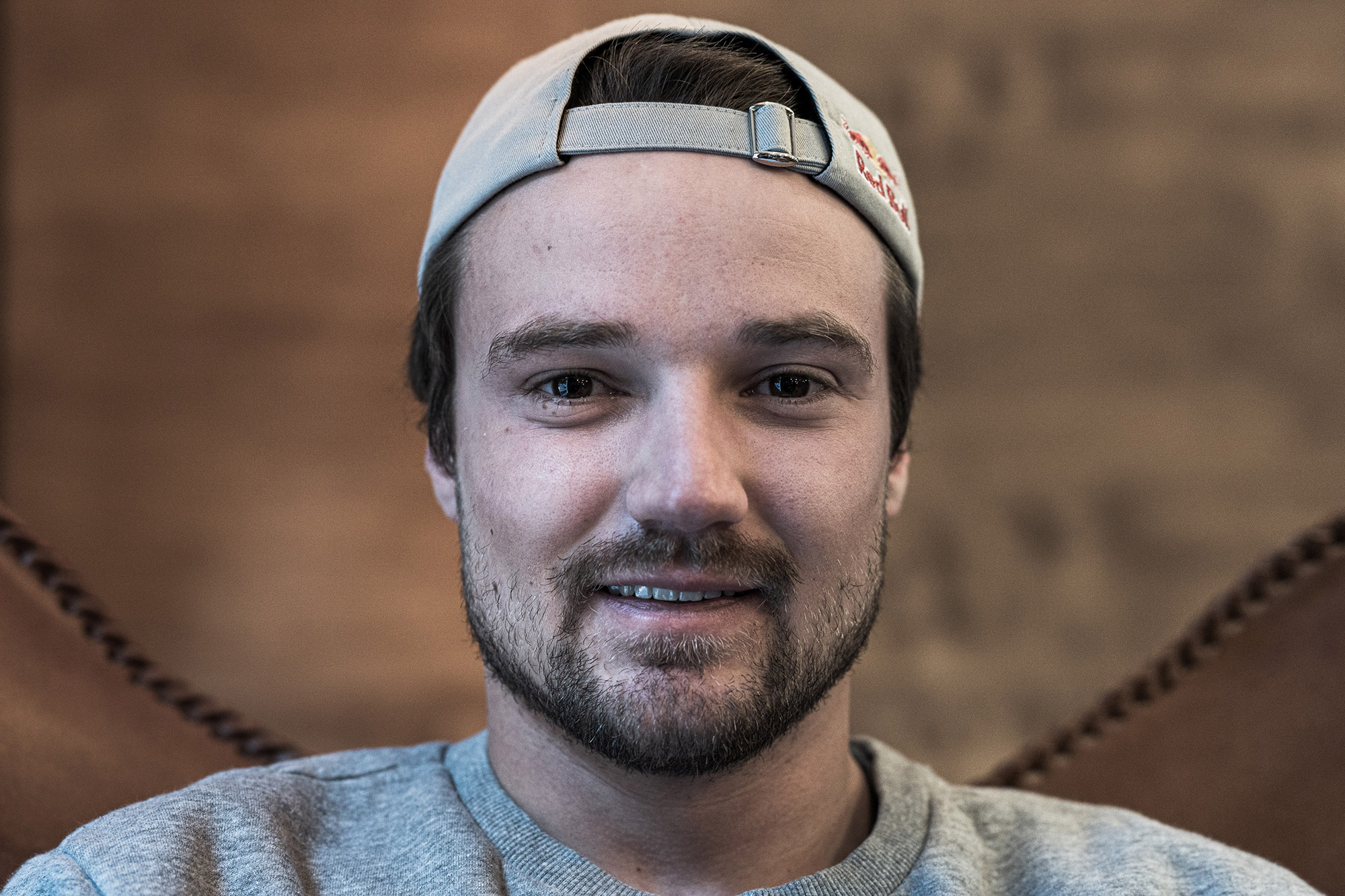
Portrait: Polzer
What’s the worst part about being Fabi Bösch?
Probably thinking a lot. Over the years I’ve started thinking about more stuff. Before I was just skiing with nothing to lose, and now I have something to lose. I could drop out of the team; will I get back? If I get injured, how quickly will I get back? It for sure doesn’t make it easier. But I’ve also learned a lot through the years, and I think I can handle it. it’s something I have to work on—talking with people, with sports psychiatrists, with coaches. That’s something I want to increase over the next years.
What’s the best thing about being Fabi Bösch?
I think I’m someone who’s really objective. I don’t look at stuff in a good or in a bad way. It is how it is, and what can I learn from it? That’s something that’s helped me throughout the years. Also, not getting too wound up about things—if I didn’t get good results, not being too mad. You can be really disappointed for a moment, but then you put it behind you, look forward, keep going. That’s something I always could do well.
Any shoutouts?
Hometown, Engelberg!
